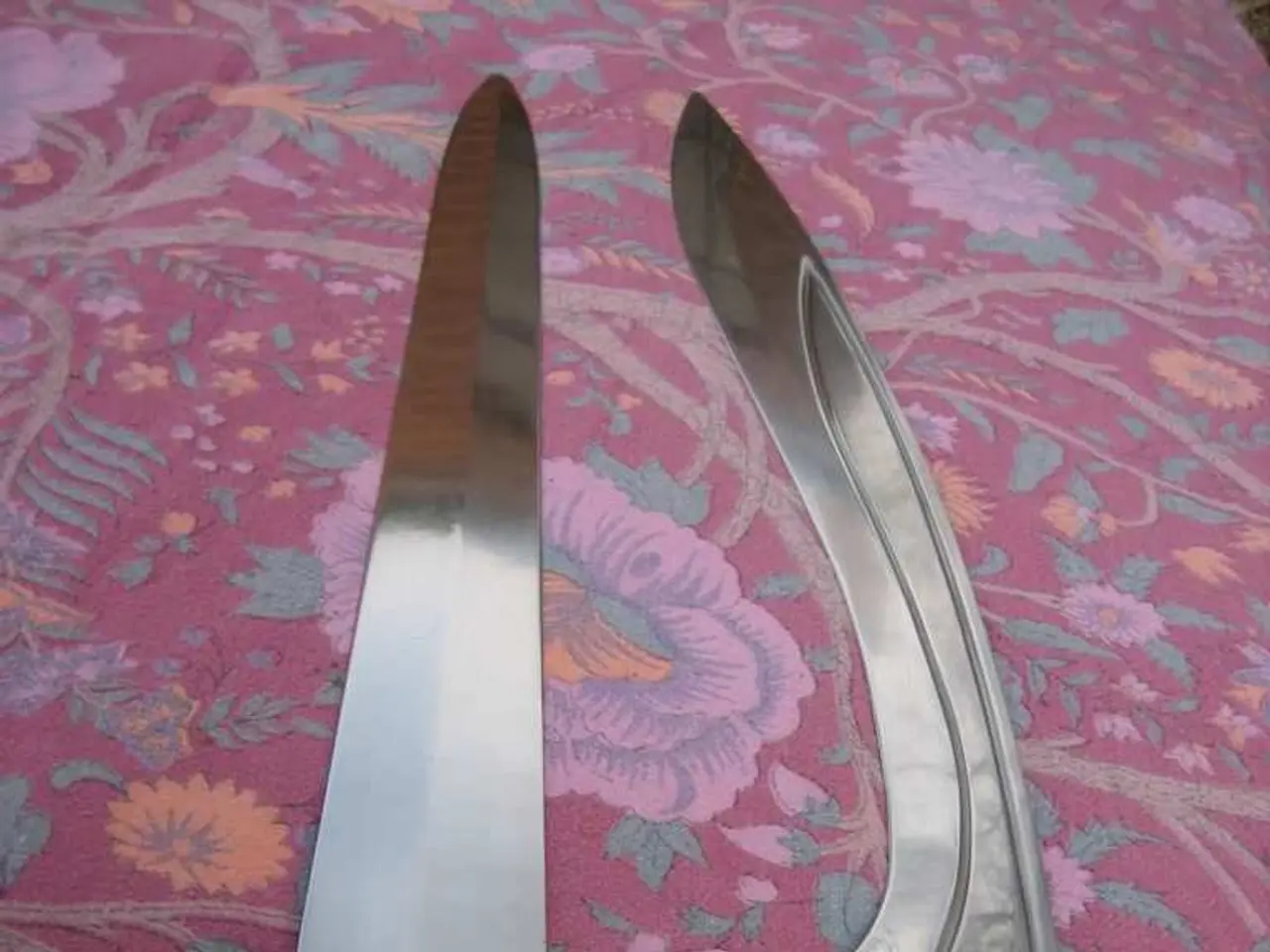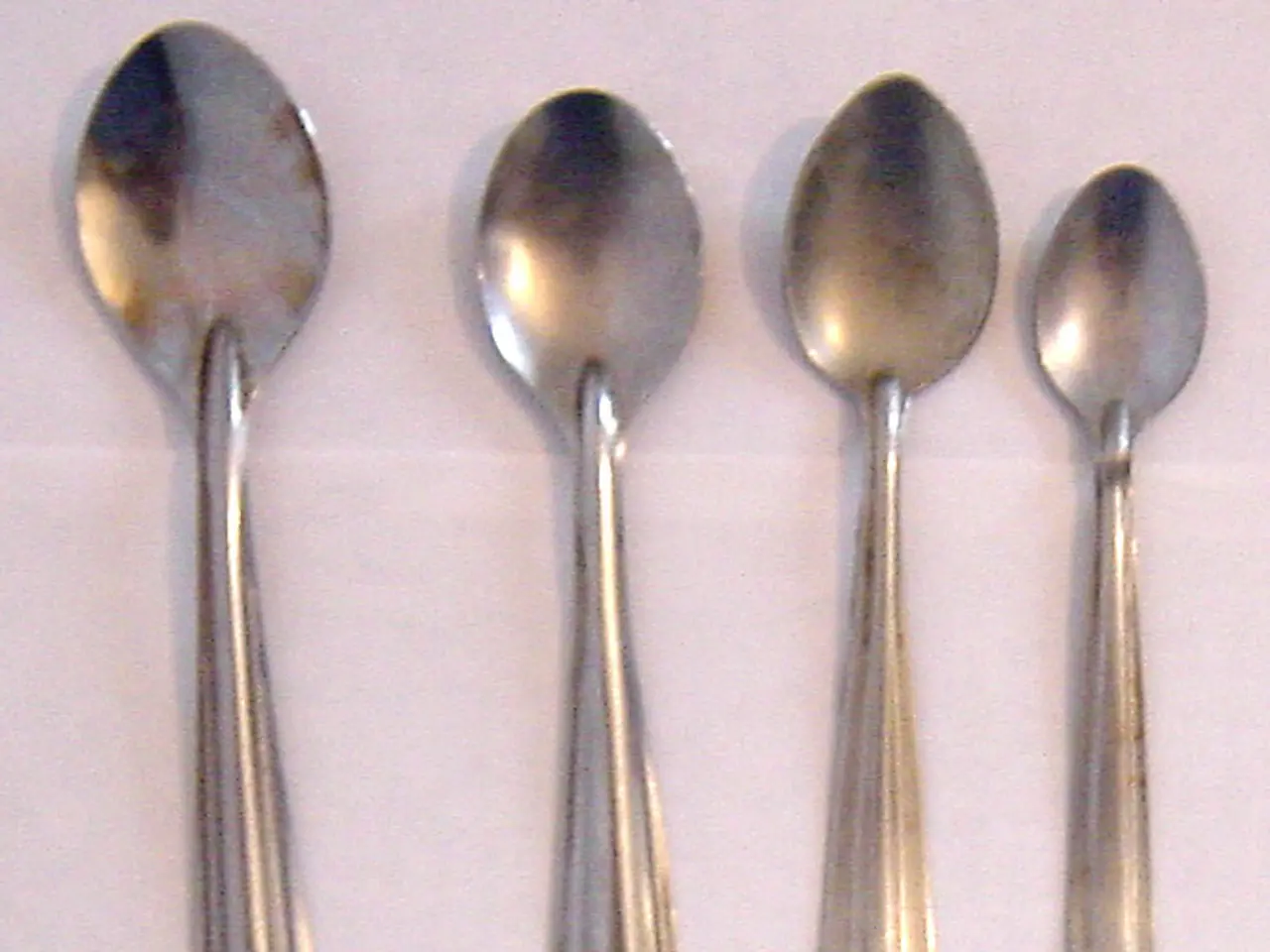UK steel industry continues to bear the brunt of a 25% tariff imposed by the U.S., sparking criticism towards Starmer amidst calls for action to alleviate the issue.
Delay in Zero-Tariff Deal on British Steel Exports to US Affects Jobs and Competitiveness
The US-UK Economic Prosperity Deal, agreed in May 2025, aimed to eliminate tariffs on British steel exports to the US. However, the deal's implementation has been delayed due to complex American trade rules. These rules require steel imported into the US to be melted and poured within the UK to qualify for tariff relief. The UK steel industry, including companies like Tata Steel UK, does not fully meet this criterion as it relies on steel imported from other European countries before manufacturing products.
As a result, the UK is pushing for a modification of these domestic-production rules so that steel sourced from places like the Netherlands but processed in the UK can qualify as British steel for tariff purposes. This sticking point has prevented immediate tariff elimination, and the 25% tariffs on British steel exports continue to remain.
The delay in tariff reduction has potential implications for jobs in the UK steel industry. The European steel sector's experience with similar tariffs provides some insight. Since the introduction of Section 232 tariffs, the EU steel industry has lost around 1 million tonnes of steel exports to the US, with significant impacts on steel-intensive sectors such as automotive manufacturing. This has presumably resulted in job losses related to steel production and steel-using sectors under tariff pressure.
Similarly, the continued 25% tariffs on British steel likely contribute to a loss of export competitiveness, which can jeopardize jobs in UK steel manufacturing and related industries. Industry leaders warn that the delay in implementing the tariff reduction is costing jobs in the UK steel industry. Each passing day without a deal puts more jobs at risk.
The US President has indicated that tariff cuts would come "pretty soon," but the exact timing depends on resolving these trade rule details. Gareth Stace, UK Steel director general, stated that there has been three months of uncertainty for businesses regarding the export of steel. No specific details about the nature of the talks between Sir Keir Starmer and President Trump have been provided.
A reduction in tariffs would give the UK a competitive advantage, as steel imported by America from much of the rest of the world faces a 50% tariff. The British steel industry has called for American tariffs on steel to be removed permanently, three months after an agreement to do so was reached. Most other British goods entering the US face a 10% levy, which is lower than the 15% agreed by Donald Trump with the EU due to Brexit.
The White House is reportedly concerned about how the deal to remove tariffs would work. The delay in implementing the zero-tariff deal on British steel exports to the US is a significant issue that affects the competitiveness of the UK steel industry and potentially jobs within it. The UK government and industry leaders are urging for a swift resolution to this matter.
References:
- BBC News
- The Guardian
- UK Steel
- European Steel Association
The UK steel industry's competitiveness is under threat due to the delay in tariff reduction on British steel exports to the US, as high tariffs make exports less attractive and potentially lead to job losses. The ongoing uncertainty surrounding the deal's implementation creates challenges for businesses in the sector, as they grapple with potential risks to their profitability and workforce.




